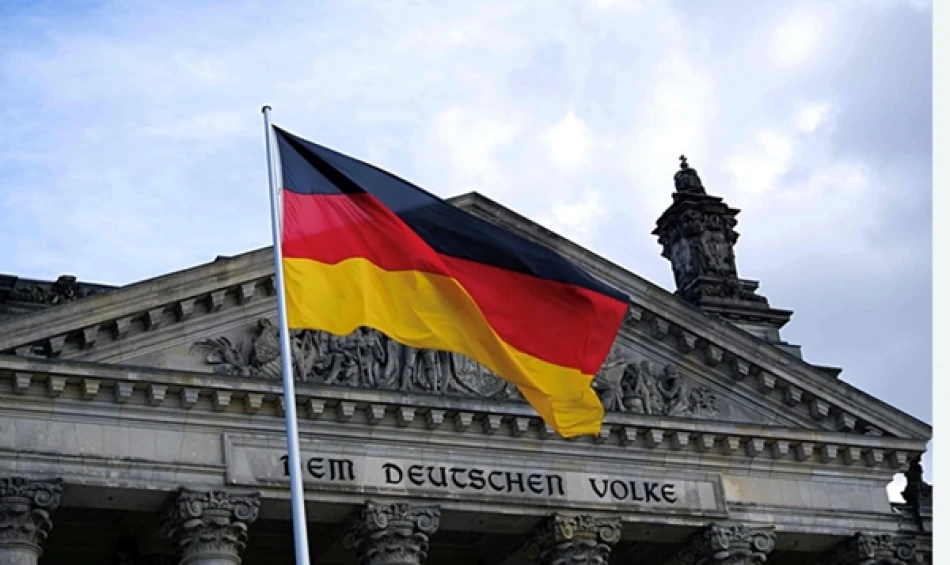
Germany Calls for Europe to Assume its Own Security Responsibility
Germany Splits on Trump-Putin Summit as Europe Faces Security Reality Check
German political leaders are drawing starkly different conclusions from the recent Alaska summit between Donald Trump and Vladimir Putin, exposing deep divisions over Europe's security strategy and the path forward in Ukraine. While some see diplomatic engagement as Europe's last hope for peace, others argue the continent must finally take charge of its own defense as traditional alliances prove unreliable.
The Putin Victory Narrative
Norbert Röttgen, the Christian Democratic Union's foreign policy expert, delivered a scathing assessment of the summit's outcomes. He argued that Putin emerged as the clear winner, having secured high-level recognition from the United States while successfully sidestepping threatened secondary sanctions—all without offering meaningful concessions in return.
"This meeting showed once again that we Europeans must organize Europe's security ourselves," Röttgen told German media outlets. His analysis reflects a growing sentiment among European hawks that the continent can no longer rely on American security guarantees, particularly under leaders willing to negotiate directly with authoritarian regimes.
Putin's Strategic Calculus
Röttgen's assessment cuts to the heart of Putin's long-term strategy in Ukraine. Rather than seeking a negotiated settlement, the Russian president appears committed to Ukraine's complete destruction through military means. This interpretation suggests that diplomatic overtures serve primarily as cover for continued military operations, buying time while Western resolve potentially weakens.
The Diplomatic Counter-Argument
Ralf Stegner, foreign policy spokesman for the Social Democratic Party, offered a markedly different perspective. He characterized the Trump-Putin dialogue as "the greatest hope so far that the war in Ukraine will end in the near future, with all its daily losses."
Stegner's position reflects traditional German diplomatic instincts, emphasizing negotiation over confrontation. He pointed to the limited success of alternative approaches, noting that weapons deliveries and escalatory rhetoric have failed to produce meaningful progress toward ending the conflict.
Europe's Strategic Awakening
The German debate mirrors broader European anxieties about continental security in an era of shifting American priorities. Trump's willingness to engage Putin directly, potentially over European heads, validates long-standing concerns about American reliability as a security partner.
This dynamic recalls similar moments during previous administrations when European leaders questioned American commitment to NATO Article 5 guarantees. However, the current situation carries added urgency given the active conflict on European soil and Putin's demonstrated willingness to use military force against neighbors.
Defense Spending Reality
Röttgen's call for European security independence faces significant practical obstacles. Most EU nations continue to fall short of NATO's 2% GDP defense spending target, while European defense industries lack the scale and integration of their American counterparts. Building credible independent deterrence would require unprecedented political will and financial commitment across the continent.
Market and Geopolitical Implications
The split German response highlights broader uncertainty about Western strategy toward Russia, with significant implications for energy markets, defense contractors, and reconstruction planning. European defense stocks have already surged since Russia's invasion began, but sustained growth depends on concrete policy commitments rather than rhetorical declarations.
For investors, the key question is whether European governments will match their security rhetoric with actual spending increases. Historical precedent suggests that crisis-driven defense commitments often fade as immediate threats recede, but the scale of the Ukrainian conflict may represent a genuine inflection point in European strategic thinking.
The German debate ultimately reflects a continent grappling with the end of the post-Cold War security order. Whether Europe chooses diplomatic engagement or military deterrence as its primary response will shape not just the Ukrainian conflict's resolution, but the broader architecture of European security for decades to come.
Most Viewed News

 Layla Al Mansoori
Layla Al Mansoori






